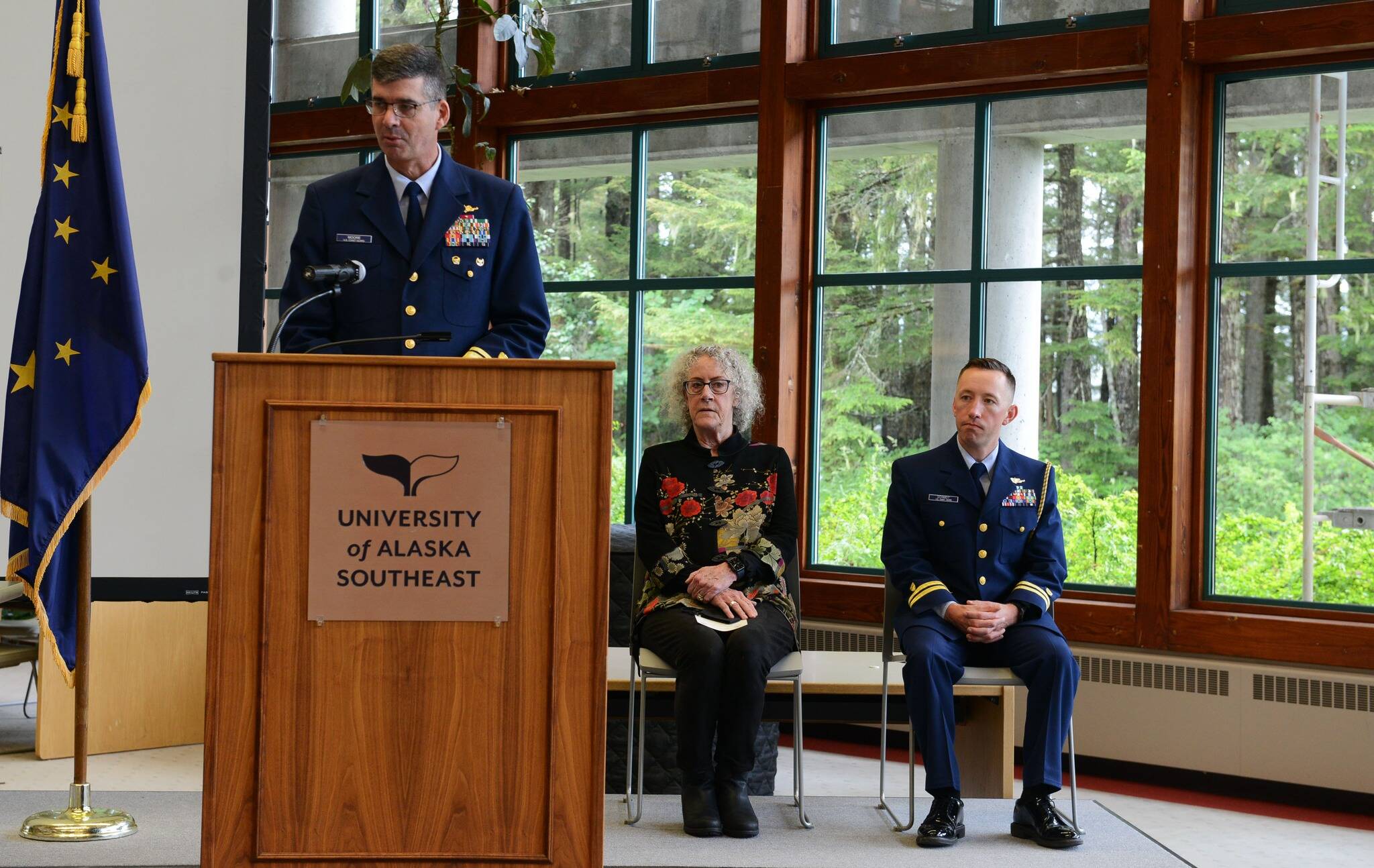Coast Guard District 17 and the University of Alaska Southeast will partner to continue to offer a non-traditional commissioning program for students at the college.
Rear Adm. Nathan Moore and UAS chancellor Karen Carey signed a memorandum on Monday renewing the College Student Pre-Commissioning Initiative at the college.
“It’s a nationwide program. It has been going in various forms for decades,” Moore said. “We don’t have an officer (Reserve Officers’ Training Corps) program. Programs like CSPI are critical to building diversity.”
[Low ceilings, low visibility: Weather interferes with flights]
The program has existed at UAS since 2017, Carey said, generating several graduates. Renewing the memorandum of agreement between D17 and UAS will keep the program in place for another four years, and is meant to signal the support of the program by the partnering organizations, Carey said.
“It is a great opportunity,” Carey said. “The Coast Guard is such a big employer in the Southeast.”
UAS, with its status as a minority-serving institution, or a college that’s federally recognized for its high level of minority students, is one of a number of colleges that have the program nationwide, Moore said. The program pays for up to two years of college tuition, offers a salary if accepted, and students commission as Coast Guard ensigns upon receiving their degree and passing through Officer Candidate School.
“Representing those communities is important. We have a very keen focus on improving diversity in the coast guard. It makes us stronger, right?” Moore said. “We wanted to reinvigorate the program. It’s been successful here and lots of places around the country so we wanted to highlight the importance of it.”
Recruiting and retention is a big priority for the new Coast Guard Commandant, Adm. Linda Fagan, Moore said, and the CSPI program is a good way to ensure that not only are there more candidates, they’re more diverse, strengthening the sea service.
“Because so many officers come from the Coast Guard Academy, having other programs like CSPI are critical to getting diversity of thought and diversity of representation in background,” Moore said. “CSPI is looking to grow. The Coast Guard is looking for other ways to bring candidates in.”
The Coast Guard, alone among the armed services, doesn’t maintain a ROTC program because the low number of officers it commissions each year makes it cost-inefficient, Moore said. However, programs like CSPI may help to recruit candidates who might not otherwise consider the Coast Guard, Moore said. The Coast Guard also has to compete against the other services, which do maintain ROTC programs in many college across the country to augment officers that come out of the service academies like the Naval Academy.
“I think the Coast Guard’s strength is that we live in the communities we serve,” Moore said. “I would be thrilled to have more Alaska Native representation in the coast guard here in Alaska.”
Carey echoed the remarks, supporting the opportunity for Alaska Native students bring their perspective to the service.
“We’re really gonna try to encourage some of our Alaska Native students to take advantage of this program,” Carey said. “It’s a great opportunity.”
Students applying for the program must meet certain GPA and credit-hour requirements, and will work through a recruiter to put together an application. Students must be between 19 and 27, be a U.S. citizen, have at least a 2.5 GPA, and meet a number of other requirements outlined on the program’s site.
• Contact reporter Michael S. Lockett at (757) 621-1197 or mlockett@juneauempire.com.

